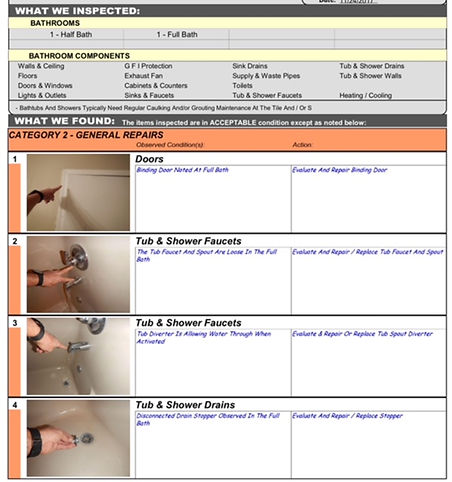Home Inspection
Congratulations! Your Offer Was Accepted
Now that your offer has been accepted, it’s time to schedule the home inspection!
Whether this is your first home or your tenth, I always recommend getting a home inspection. When you toured the house, you likely focused on the layout, room sizes, and cosmetic details. A home inspection takes a deeper dive, giving you a clear picture of the home’s condition—and some well-earned peace of mind.
Recommended Inspections in Indiana
-
Full Home Inspection
A general inspection that evaluates the home’s overall condition, covering everything from the roof to the foundation. -
Radon Inspection
A test that measures radon levels in the home. Radon is a naturally occurring gas that can be hazardous at high levels. In Indiana, radon levels below 4.0 pCi/L are considered safe. -
Termite Inspection
This inspection checks for signs of termite damage in key areas, such as the exterior, interior, crawl space, and attic.

Why a Home Inspection Is a Must-Have
Without a home inspection, how will you know if everything in the house is functioning properly or up to code? Here are two key reasons why I always recommend getting a home inspection:
-
Inspection Response: A home inspection allows you to submit an inspection response, requesting the seller to address necessary repairs. Most offers are contingent on a home inspection, giving you a 10–14 day window after acceptance to complete the inspection and submit your requests. Without a licensed inspection, your requests may not carry much weight with the seller. An official inspection report documents any issues, ensuring that they’re properly addressed before closing.
-
Peace of Mind: A home inspection provides confidence in your purchase. The inspector will thoroughly assess the home, identify any potential code violations or issues, and provide you with a detailed report. This report isn’t just useful during the transaction—it becomes a helpful guide for you after closing. Think of it as your personalized home to-do list for smaller fixes you may want to tackle after moving in. Let the inspector do their job so you can focus on enjoying your new home with fewer surprises!

What Home Inspectors Typically Don’t Cover
While home inspections are thorough, they won’t catch everything, and there are some areas inspectors typically avoid:
-
Outlets Behind Furniture: Inspectors won’t move furniture to check hidden outlets.
-
Wet or High Roofs: If it’s raining or the roof is too steep, inspectors may skip climbing for safety reasons.
-
Chimneys: Inspectors will check if the damper works but usually recommend a chimney expert for a more detailed inspection.
-
Fences: Since fences aren’t part of the home itself, they’re generally excluded from inspections.
-
Mold Testing: Unless you pay for a specific mold test, inspectors won’t scrape samples for lab testing. If something looks suspicious, they’ll likely suggest calling in a specialist.
Post-Inspection: What Happens Next?
Once you and the seller agree on any inspection-related repairs, this step is complete! It’s a good idea to request receipts or invoices for completed repairs. In some cases, you may want to schedule a re-inspection to confirm the work was done correctly—this is an extra service that most inspectors offer.
In the end, a home inspection is an essential safeguard. It helps you understand the condition of your future home and avoid costly surprises. I always recommend getting one, and if you have any questions, feel free to reach out!
